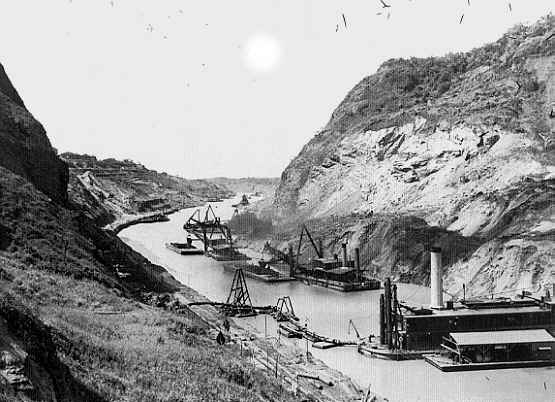History isn’t just a record of the past; it’s a powerful tool for understanding patterns, avoiding mistakes, and navigating the complexities of the future. By studying historical events, decisions, and outcomes, we can gain valuable insights that guide our future actions. Whether in governance, business, technology, or personal development, the lessons from history are invaluable for planning effectively.
1. Learning from Past Mistakes
One of the clearest ways history aids future planning is by teaching us what not to do. Historical blunders—from poor political decisions to disastrous business ventures—often provide clear examples of the consequences of specific actions. For instance, the financial crisis of 2008, rooted in risky lending practices, reminds businesses and governments alike to adopt more cautious financial strategies to avoid future economic crashes.
Similarly, the study of military history offers lessons about strategy, leadership, and the dangers of overreach. Consider Napoleon’s failed invasion of Russia in 1812, which many historians attribute to logistical errors and underestimating environmental conditions. This can serve as a cautionary tale for modern leaders to thoroughly assess risks before embarking on large-scale endeavors.
Example:
- The 2008 financial crisis and the importance of risk management in finance.
Investopedia on 2008 Crisis
2. Understanding Long-term Trends
History allows us to see trends over long periods. These trends—whether demographic, technological, or social—can help us predict future developments. For instance, by studying the Industrial Revolution, we gain insights into how technological innovations disrupt industries and reshape economies. Understanding how past revolutions in technology transformed society can inform how we approach modern challenges, such as artificial intelligence or automation.
Another example is demographic shifts. By analyzing population changes in past centuries, such as urbanization or migration trends, policymakers today can anticipate future pressures on resources, housing, and jobs.
Example:
- The technological shifts during the Industrial Revolution and its parallels with the rise of AI.
History of the Industrial Revolution
3. Building Resilience through Adaptation
Studying history shows us how individuals, societies, and governments have adapted to crises. The COVID-19 pandemic reminded us of past pandemics like the 1918 Spanish Flu, highlighting the importance of public health infrastructure, global cooperation, and preparedness. Learning from how previous generations overcame adversity can help us build resilience to face future challenges.
History also provides examples of how civilizations adapted to environmental changes. Ancient civilizations like the Maya and Mesopotamians thrived until environmental degradation led to collapse. These examples underscore the necessity of sustainable environmental practices today to mitigate the effects of climate change.
Example:
- Lessons from the Spanish Flu and the value of public health preparedness for pandemics.
History of the 1918 Pandemic

4. Inspiring Innovation and Change
Innovation doesn’t happen in a vacuum. Often, it is inspired by past achievements. The Renaissance, for example, was fueled by a renewed interest in the knowledge of classical antiquity. By understanding the breakthroughs and achievements of the past, innovators can find inspiration for future developments.
In the field of technology, studying historical inventors and pioneers—like Nikola Tesla’s contributions to electricity—can spark new ideas and directions for future research. History can thus serve as a foundation for new creative endeavors.
Example:
- The influence of classical antiquity on Renaissance art and innovation.
History of the Renaissance
5. Informed Decision Making in Governance and Policy
Leaders can use history to inform policy decisions. Successful governance often relies on a deep understanding of what has worked in the past. From democratic movements to economic reforms, leaders who study history can avoid policy failures and promote sustainable growth.
For example, the Marshall Plan, which helped rebuild Europe after World War II, stands as a model for foreign aid programs. Its success can be a reference for future efforts in post-conflict reconstruction and economic development.
Example:
- The success of the Marshall Plan as a model for international aid.
Marshall Plan Overview
Conclusion
History offers a rich repository of lessons, trends, and inspirations that are essential for future planning. By reflecting on past successes and failures, we can make more informed decisions, build resilience, and foster innovation. Whether you’re a policymaker, business leader, or simply navigating personal growth, embracing the lessons of history can provide a crucial advantage in an unpredictable future.
And dont forget:
Inspiration from Historical Successes
History is not just a catalog of errors; it is also a testament to human achievement. Successful governance, scientific breakthroughs, and social movements can serve as models for current and future efforts. The scientific revolution, for instance, continues to inspire modern technological advancement. Similarly, the civil rights movements of the 20th century show how persistent, nonviolent efforts can bring about systemic change, a lesson relevant to today’s struggles for equality and justice.
Further Reading
For those looking to dive deeper into how history can inform future planning, here are some resources:
- “Why Study History?” by Peter N. Stearns – A thought-provoking discussion on the practical value of history.
- History.com: https://www.history.com/
- World History Encyclopedia: https://www.worldhistory.org/
- Stanford History Education Group: https://sheg.stanford.edu/
These sources offer a broader context for understanding historical events and their lasting impact on modern decision-making.
Here some recommended links selected for you: The Best Books of the Month, Todays best Deals at Amazon, Best Sellers in Cell Phones & Accessories and last but not least the easy and great way to send a gift for the holidays: Amazon.com eGift Card (Instant Email or Text Delivery).




